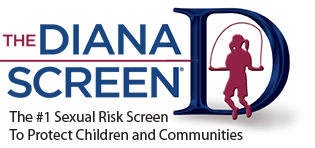Residential Treatment Centers Must Thoroughly Screen Staff
Many adolescents and teens in residential treatment programs have been traumatized or may sexually act out. For these youth it is critically important that the adults with whom they interact constantly reinforce clear and appropriate sexual boundaries.
While most adults who apply to work in residential treatment programs model and reinforce healthy adult-child sexual boundaries, there are others who do not recognize them. Others are permission givers who fail to respond appropriately when they witness other adults crossing boundaries with youth in these programs.
-
At two, multi-state, youth-serving agencies, organization records
indicated four official reports of boundary violations by staff over
a six-month period.
-
However, in an anonymous survey by Abel Screening, Inc., staff
indicated knowledge of 487 boundary violations over the same
period.
Boundary violations occur quite frequently, but are most often not
reported putting adolescents and teens in residential treatment
programs at continued risk.
In addition, an estimated 6% of adults in the general population have a sexual interest in children. These adults apply in greater numbers to work and volunteer with children and teens.
These adults:
-
Hide their sexual interest in children and teens
-
Often fail to reinforce clear boundaries with traumatized youth who are sexually acting out
-
Often fail to protect the children and teens in their care
-
Are equally represented in every socio-economic group and every religion
-
Can’t be detected simply by interviewing them
Without proper screening, adults like these may be hired as directors, educators and counselors.
Background Checks Aren’t Enough
Because only 6% of child sexual abuse is ever reported to the police, criminal background checks are largely ineffective at identifying individuals who may have already sexually abused a child. In fact, ChoicePoint reported looking at over 3.5 million background checks and finding only 0.2% that could be identified as sexual offenders.
The Diana Screen
In contrast to criminal background checks, The Diana Screen does not rely on public records or criminal histories. The Diana Screen methodology provides much more effective results. Administered to job applicants and volunteers, The Diana Screen is a child safety screen that helps identify adults who fail to recognize adult-child sexual boundaries or who are at a high risk for having sexually abused a child in the past. Because The Diana Screen does not rely on public records or criminal histories, it does a better job of helping to identify those individuals who may detract from the safety and welfare of the children in an organization. The Diana Screen is dramatically more effective than criminal background checks in protecting children and teens against this risk.
Using The Diana Screen accomplishes the following:
-
Helps identify applicants who are most likely to cross sexual boundaries with youth
-
Acts as a deterrent
-
Helps agencies select the safest adults to work with children by forming a safer pool of prospective hires and volunteers
For more information about The Diana Screen or Abel Screening's line of Child Protection Products, please Contact Us or call at 404.874.4772.
For a list of sources supporting the information on this page, go to References.

